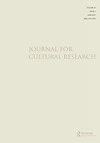反对现代主义的幻想:为什么我们需要更多民主和建构主义的替代方案来揭穿阴谋论
IF 0.6
Q1 CULTURAL STUDIES
引用次数: 21
摘要
各种社会和学术行动者认为,阴谋论应该通过坚持既定认识机构提供的真实“事实”的真实性来揭穿。但是,学术学者是纠正人们信仰的合适行动者吗?这是正确的、最有成效的做法吗?根据荷兰阴谋论环境中多年的民族志研究经验,我在本文中解释了为什么揭穿阴谋论是不可能的(学者们真的能知道真正的真相吗?),而不是专业的(在真相战争中偏袒一方是我们应该做的吗?),并且没有生产力(提供更多“正确”的信息是行不通的,因为知识接受不仅仅是一个认知/认识问题)。我在本文中主张一种既在认识论上更强,又在社会学上更有效的替代方案,而不是重新建立现代主义的科学合法化叙事。在科学技术研究领域对认识民主的研究和实验的基础上,我建议建立“协商公民知识平台”,而不是仅仅由精英专家小组来评估公共信息的质量。这样的社会代表机构应该享有更多的合法性和认识的多样性,以更好地处理阴谋论及其所代表的真理和知识的更广泛的社会冲突。本文章由计算机程序翻译,如有差异,请以英文原文为准。
Against modernist illusions: why we need more democratic and constructivist alternatives to debunking conspiracy theories
ABSTRACT Various societal and academic actors argue that conspiracy theories should be debunked by insisting on the truthfulness of real “facts” provided by established epistemic institutions. But are academic scholars the appropriate actors to correct people’s beliefs and is that the right and most productive thing to do? Drawing on years of ethnographic research experiences in the Dutch conspiracy milieu, I explain in this paper why debunking conspiracy theories is not possible (can scholars actually know the real truth?), not professional (is taking sides in truth wars what we should do?), and not productive (providing more “correct” information won’t work as knowledge acceptance is not just a cognitive/epistemic issue). Instead of reinstalling the modernist legitimation narrative of science, I argue in this paper for an alternative that is both epistemologically stronger and sociologically more effective. Building from research and experiments with epistemic democracy in the field of science and technology studies, I propose to have “deliberative citizen knowledge platforms”, instead of elite experts groups alone, asses the quality of public information. Such societally representative bodies should enjoy more legitimacy and epistemic diversity to better deal with conspiracy theories and the broader societal conflicts over truth and knowledge they represent.
求助全文
通过发布文献求助,成功后即可免费获取论文全文。
去求助
来源期刊

Journal for Cultural Research
CULTURAL STUDIES-
CiteScore
1.40
自引率
0.00%
发文量
23
期刊介绍:
JouJournal for Cultural Research is an international journal, based in Lancaster University"s Institute for Cultural Research. It is interested in essays concerned with the conjuncture between culture and the many domains and practices in relation to which it is usually defined, including, for example, media, politics, technology, economics, society, art and the sacred. Culture is no longer, if it ever was, singular. It denotes a shifting multiplicity of signifying practices and value systems that provide a potentially infinite resource of academic critique, investigation and ethnographic or market research into cultural difference, cultural autonomy, cultural emancipation and the cultural aspects of power.
 求助内容:
求助内容: 应助结果提醒方式:
应助结果提醒方式:


